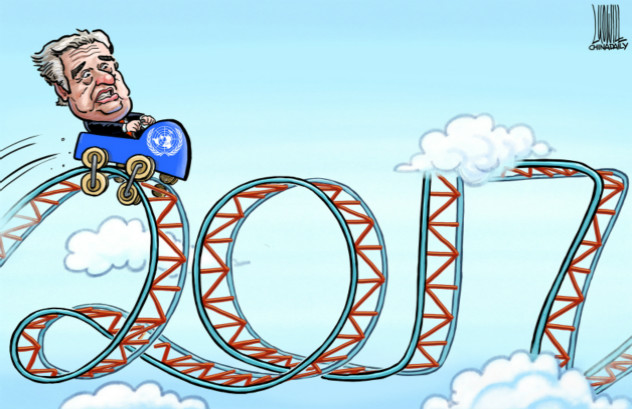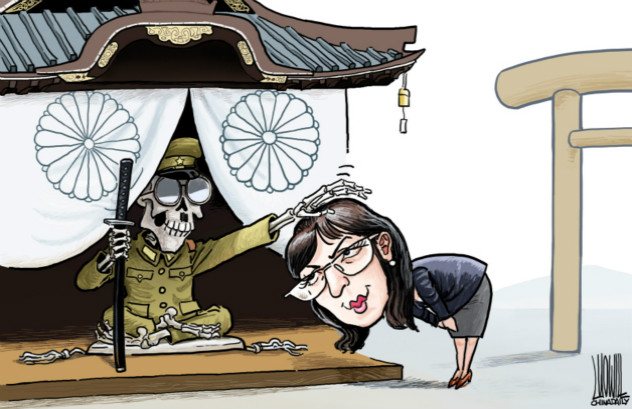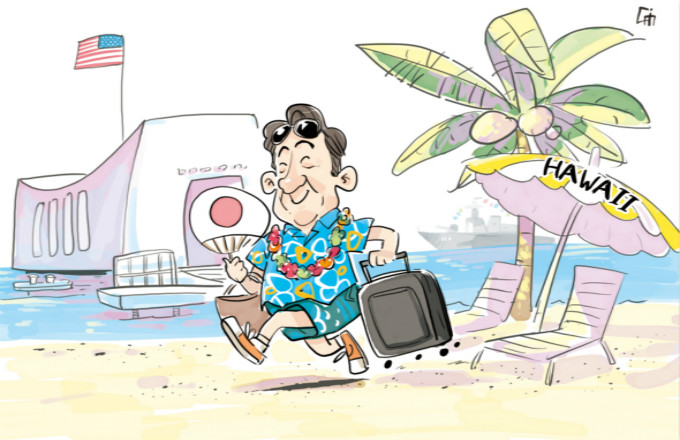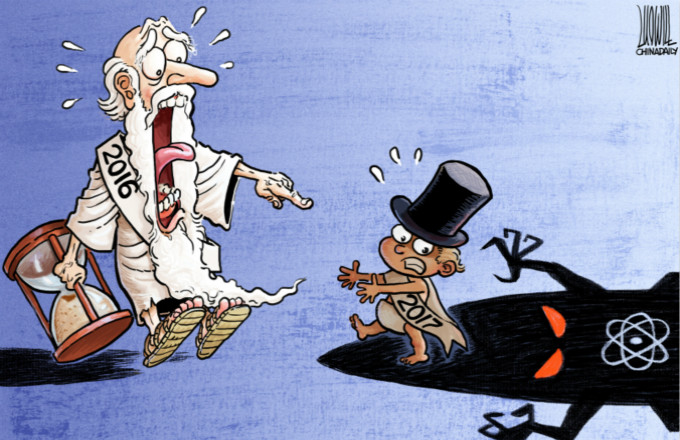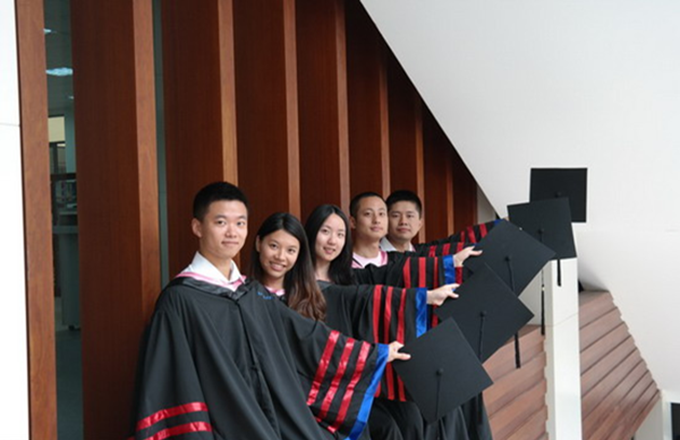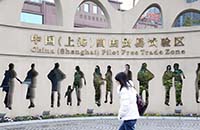Enforcing forex rules not currency control
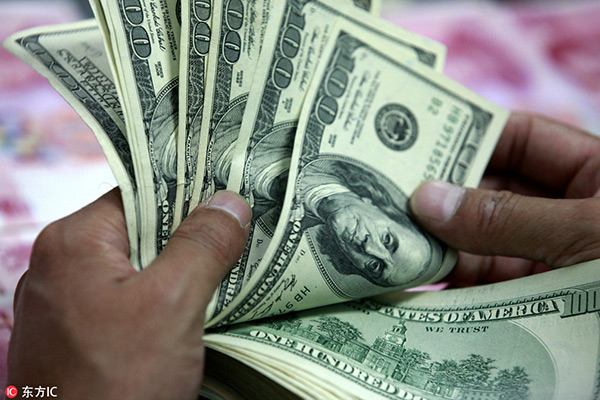 |
|
A Chinese clerk counts US dollar banknotes at a bank in Huaibei city, East China's Anhui province. [Photo/IC] |
Instead of currency control, China's foreign exchange regulator is closing some of the loopholes in law enforcement and responding to capital flight.
The State Administration of Foreign Exchange in its notice on Sunday requires that people applying to exchange the yuan to another currency declare the intended use. The administration, against some predictions, has left the annual $50,000 quota of foreign currency that can be purchased per person unchanged.
Customers must now give a written pledge that the money will not be used for overseas purchases of property, securities, life insurance or any other insurance of an investment nature.
The customers must also confirm compliance with restrictions on money laundering, tax evasion and dealings with extra-legal dealers. Those wishing to convert more than the $50,000 quota will need to prove the lawful purpose of the transaction.
Banks are also required to verify the identity of the individuals and flag any large-volume or suspicious transactions.
Violators of the above rules, the policy states, will be added to the regulator's watch list, denied a foreign-exchange quota for three years, and possibly subjected to anti-money-laundering investigations.
These are not new rules. They are simply more stringent enforcement of the existing ones.
The regulator's move is a reaction to the enormous outflow of capital from the mainland in 2016, fueled by Chinese people's rising enthusiasm for shopping for overseas assets and insurance policies, and also by the downward pressure on the value of yuan against the US dollar.
Goldman Sachs, the US investment bank, estimated in December that a total of $1.1 trillion in foreign currency has left China since August 2015.
This being the case, precaution is needed for 2017 now that the US economy is increasingly attractive for speculative money and the yuan is still under pressure. For depreciation triggers capital flight, and capital flight puts further pressure on the yuan.
The move by the forex administration cannot be called harsh, and it is far from being a currency control. Plugging the loopholes in the existing regulatory system is necessary as the nation prepares to embark on more difficult but trailblazing reform efforts.
Down the road, additional protective measures may be needed to help small investors reduce their exposure to outside risks, and help the nation as a whole to avoid draining its foreign exchange reserves too quickly when facing a rise in uncertainties in the global market.


